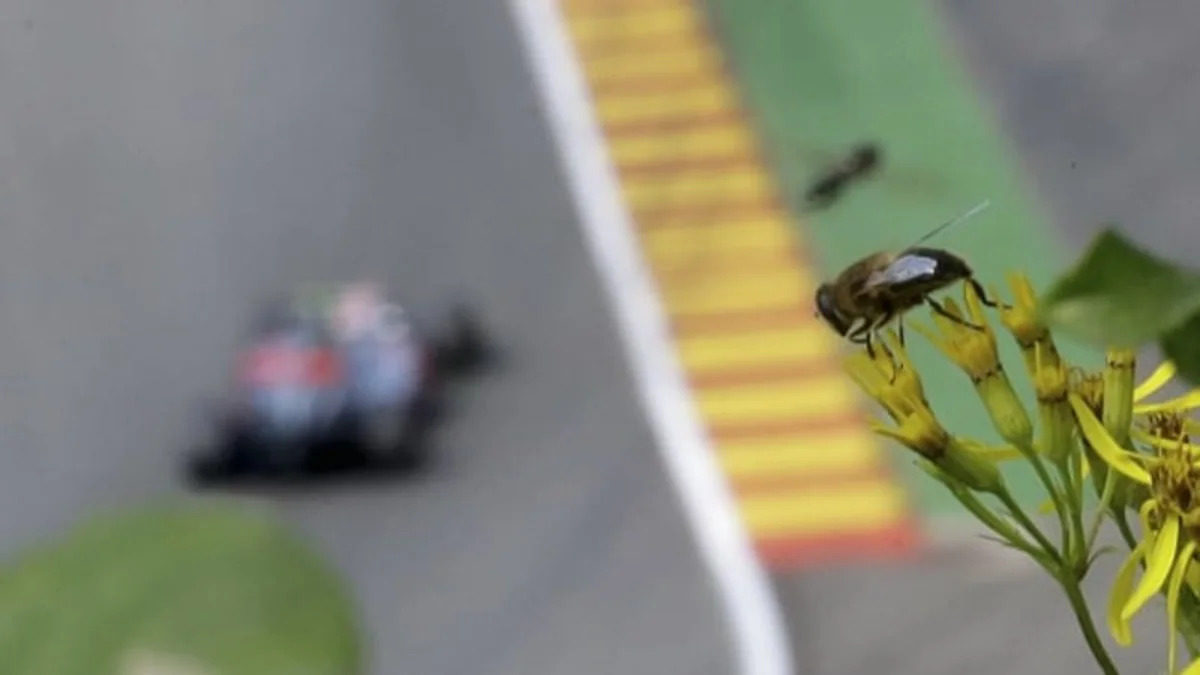Among all the various factors playing into the collapse of bee colonies around the world, one of them could be your car. A UK study into how diesel exhaust fumes may affect bees' ability to pollinate flowers found that nitric oxide (NO) and nitrogen oxide (NO2) - NOx gases - change the chemical composition of floral odors, making it harder for them to identify and locate flowers that they're normally attracted to, National Geographic reports. While this study focused on diesel engine exhaust fumes, gasoline-, biofuel- and ethanol-burning engines also produce exhaust fumes that contain NOx gases.
To perform the study, researchers at the University of Southampton required bees and a flower scent that they would be attracted to, so they obtained the insects and used an odor palette from oilseed rape flowers. The odor compounds from the flower that bees are attracted to are farnesene and terpinene, and soon after switching on a diesel generator, the exhaust fumes started to break down the compounds.
"To our surprise, really, we saw that even changes in one of the very minor constituents of the mixture caused a major change in the responsiveness of the bee to the smell," says Tracey Newman, a University of Southampton neurobiologist and co-author of the study.
Because the exhaust fumes changed the chemical composition of floral odors, it provides evidence of what scientists have long thought: air pollution is contributing to the decline of bees. The US and European Union monitor and set limits for NO2 levels as a proxy for all NOx gases. Nitric oxide (NO) largely has been ignored as a NOx gas because it isn't "heavily associated with greenhouse gases," says Guy Poppy, an ecologist and co-author of the study. "These are the sorts of emissions that are sometimes left out from the discussion about climate change," he says.
Another important lesson researchers learned in the study is that ultra-low-sulfur diesel, claimed to be cleaner than traditional diesel and used to power the study's diesel generator, still affects bees' olfactory skills, though Penn State University meteorologist Jose Fuentes does point out that the levels of pollutants in the experiment were high for urban rush hour.
To perform the study, researchers at the University of Southampton required bees and a flower scent that they would be attracted to, so they obtained the insects and used an odor palette from oilseed rape flowers. The odor compounds from the flower that bees are attracted to are farnesene and terpinene, and soon after switching on a diesel generator, the exhaust fumes started to break down the compounds.
"To our surprise, really, we saw that even changes in one of the very minor constituents of the mixture caused a major change in the responsiveness of the bee to the smell," says Tracey Newman, a University of Southampton neurobiologist and co-author of the study.
Because the exhaust fumes changed the chemical composition of floral odors, it provides evidence of what scientists have long thought: air pollution is contributing to the decline of bees. The US and European Union monitor and set limits for NO2 levels as a proxy for all NOx gases. Nitric oxide (NO) largely has been ignored as a NOx gas because it isn't "heavily associated with greenhouse gases," says Guy Poppy, an ecologist and co-author of the study. "These are the sorts of emissions that are sometimes left out from the discussion about climate change," he says.
Another important lesson researchers learned in the study is that ultra-low-sulfur diesel, claimed to be cleaner than traditional diesel and used to power the study's diesel generator, still affects bees' olfactory skills, though Penn State University meteorologist Jose Fuentes does point out that the levels of pollutants in the experiment were high for urban rush hour.


Sign in to post
Please sign in to leave a comment.
Continue